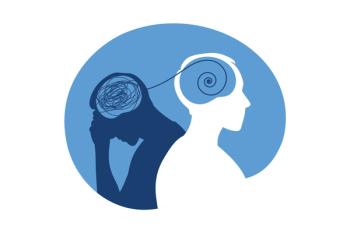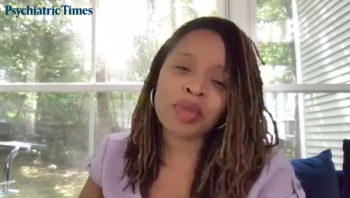
Use of Antipsychotics in Bipolar 1 Disorder
Experts in psychiatry discuss the use of antipsychotics for treatment of bipolar 1 disorder.
Episodes in this series

Vladimir Maletic, MD, MS: One recent study looked at the patterns of prescriptions of patients who have bipolar disorder in 15 years, from 2000 to 2015.
Andrew Cutler, MD: I’m familiar with this one.
Vladimir Maletic, MD, MS: You’re aware of that study, of course. There is an interesting trend, on one hand, supporting your view, the use of antipsychotic agents, especially second-generation antipsychotic agents has significantly increased. On the other hand, you have prescriptions for antidepressants.
Andrew Cutler, MD: Surprisingly. I know.
Vladimir Maletic, MD, MS: The part that is concerning is antidepressants without mood stabilizers have doubled in the last 15 years.
Andrew Cutler, MD: Isn’t that incredible? The most common prescribed medicine for bipolar is a traditional non-mood stabilizing antidepressant.
Vladimir Maletic, MD, MS: Often they’re combined with mood-stabilizing medicines and antipsychotics. Our colleagues clearly do not abide by guidelines. What do you think? Why are they prescribing antidepressants without a mood stabilizer, without a foundational agent for treating bipolar disorder? I’m just amazed.
Andrew Cutler, MD: I think we have a semantic problem, and I think the DSM [American Psychiatric Association’s Diagnostic and Statistical Manual of Mental Disorders] does us no favors. I’m going to start with this: nowhere else in medicine would you do what we do in psychiatry. Nowhere else do you use the same word for a symptom, a syndrome, and a diagnosis. A syndrome is a collection of symptoms. For instance, I would not say you have fever disease, or fever, chest pain, cough disease, which is a syndrome. You would know if you saw that syndrome, that collection of symptoms, to look for the underlying diagnosis. And yet because we have an illness that’s called major depression and because we have a syndrome called a major depressive episode, I think we see a patient, and go, they’re depressed, great, I have this class of medicines called antidepressants, and my brain just wants to go there. That’s part of the issue. Semantically, people need to step back and recognize that when you have a patient with a depressive episode, you must screen for bipolar disorder because the treatments are different. Traditional antidepressants either don’t work or can make somebody worse. One of the concepts I like to think about the bipolar brain is not well-buffered. I realize that’s a very gross analogy, but it’s not well-buffered and so if you flood it with monoamines, it’s going to go off the road, is what I like to say. It doesn’t have guardrails, so you’ll go off into a mood episode. Same thing is true for significant postpartum depression or menopause, when women’s brains are having significant hormonal shifts. A woman with bipolar disorder will often go into a severe mood episode at times like that. I think that might be part of the problem, that our brain wants to go to an antidepressant. This is a problem with nomenclature, as we’ve talked about many times before. It’s unfortunate that we have a class of drugs called antidepressants and a class of drugs called antipsychotics. It’s just not the way they work. As you heard me earlier, I like to distinguish between what I call the traditional non-mood stabilizing antidepressants, which are predominantly reuptake inhibitors, and what I call the mood stabilizing antidepressants, which are some of the atypical antipsychotics. Another interesting fact is all the antipsychotics, whether first generation or second generation, work well for psychosis and probably for mania, but they don’t all have as strong antidepressant signal. That’s what I find fascinating because several of the newer atypical antipsychotics have been studied either as adjunct for unipolar major depression or for bipolar depression and there have been some failures. Then there are some that have had very robust antidepressant signals in that setting. I find that fascinating.
Vladimir Maletic, MD, MS: It’s important that you’re making a distinction. While most will work for bipolar mania, select few, and I think you have mentioned olanzapine and quetiapine, and lurasidone and cariprazine, and more recently, lumateperone. Those agents have an efficacy in bipolar depression, but bipolar depression is a dominant mood state as you have pointed out.
Transcript edited for clarity
Newsletter
Receive trusted psychiatric news, expert analysis, and clinical insights — subscribe today to support your practice and your patients.








